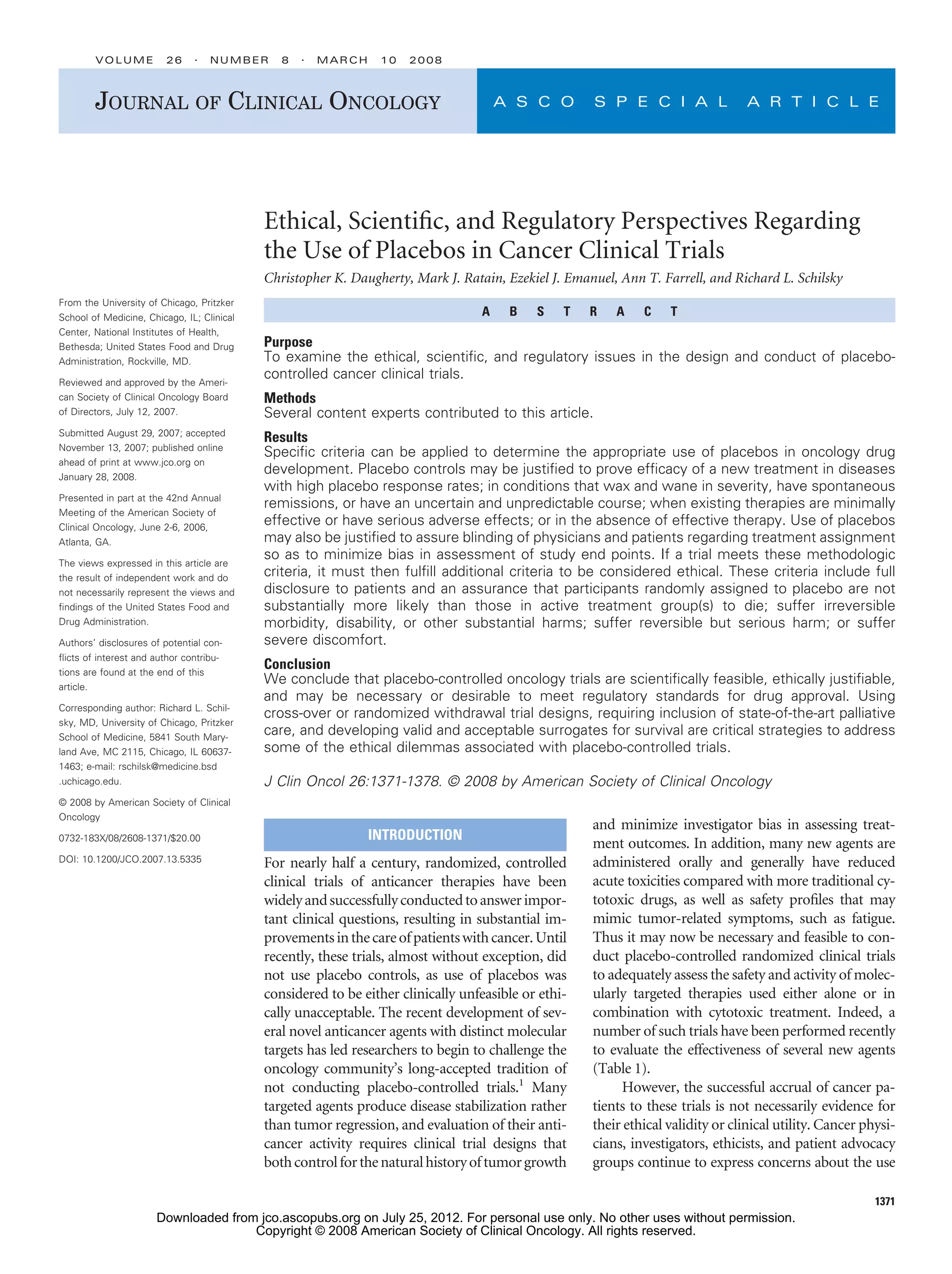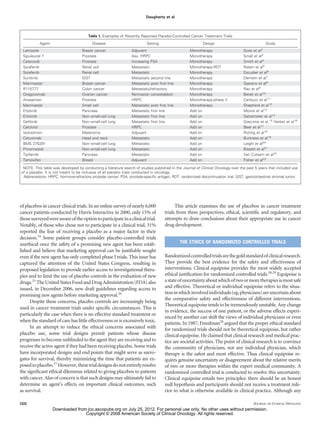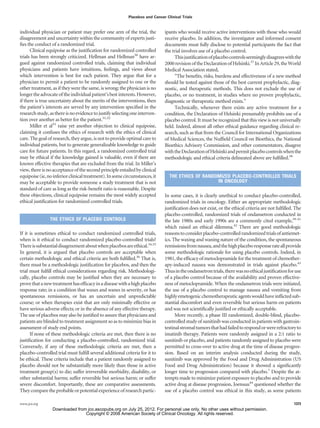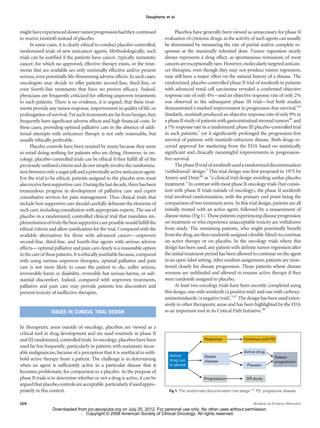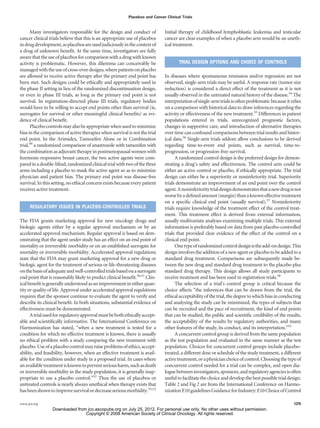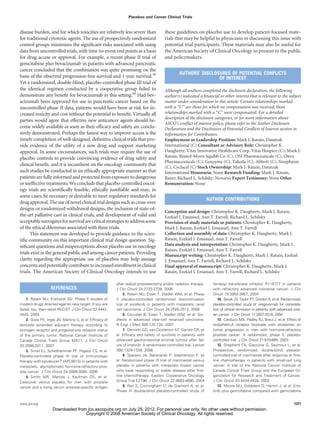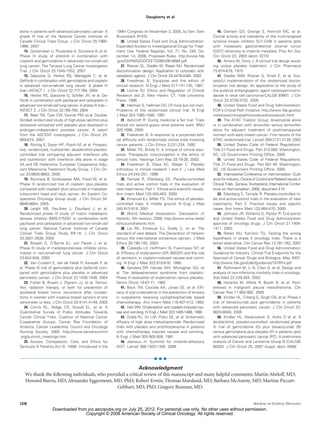1) This article examines the ethical, scientific, and regulatory issues regarding the use of placebos in cancer clinical trials.
2) It argues that placebo controls may be justified in certain situations, such as when existing therapies are minimally effective or have serious side effects, or when placebo response rates are high.
3) For a placebo-controlled trial to be considered ethical, patients must provide full informed consent and those receiving placebo should not face substantially higher risks of serious harm compared to active treatment groups.
